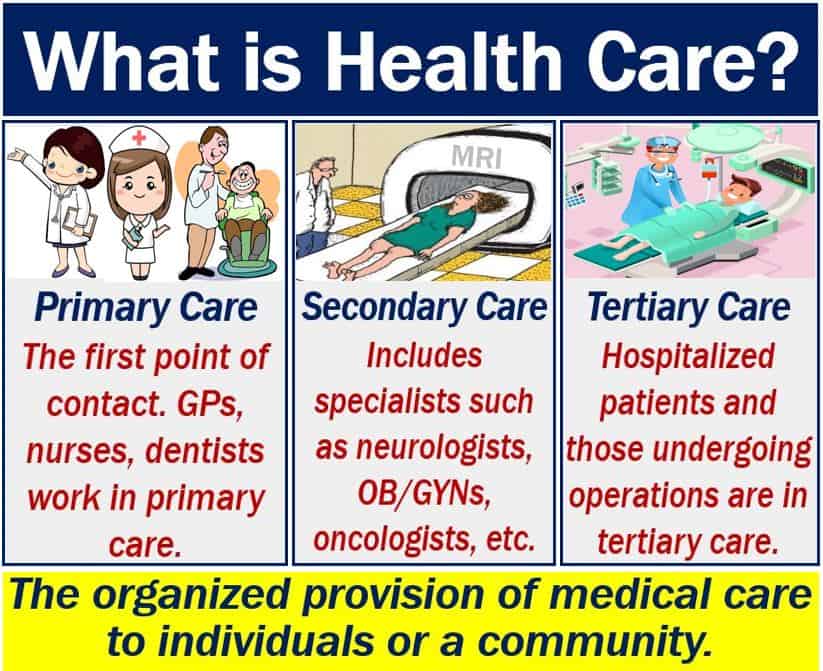Health care refers to the efforts that medical professionals make to restore our physical and mental well-being. The term also includes the provision of services to maintain emotional well-being. We call people and organizations that provide these services ‘health-care providers.’ We call the people either health-care workers, health-care providers, health-care professionals, or health professionals.
The term also applies to the organized provision of medical care to humans or a community.
Healthcare or health care?
There are two ways we can write the term, healthcare or health care. Both spellings are correct. However, the one-word version as a noun is becoming progressively more common in the native-English-speaking world.
In the UK, Ireland, and Australasia, ‘healthcare’ is much more common than in North America. In fact, the one-word version currently appears three times as often as ‘health care’ in British publications.
Many people in North America resist the change to healthcare, where health care continues dominating scholarly texts. The two-word version also dominates in North American government publications.
Put simply; North America favors the two-word version, while the UK, Ireland, and Australasia favor healthcare.

Types of health care
There are three main types of health care: 1. Primary Care. 2. Secondary Care. 3. Tertiary Care.
Primary Care
Primary care is the first point of contact for the majority of people. For example, GPs, dentists, and community pharmacists work in primary care. GP stands for General Practitioner.
We also refer to general practitioners as family physicians or primary care physicians.
Nurse practitioners and some other types of nurses are also primary care professionals.
Secondary care
After patients have seen a primary care provider, they may then see a secondary care professional. This person may be a specialist.
For example, if you suffer from mild chest pains, you may first see your GP. The GP may then refer you to a cardiologist. The cardiologist works in secondary care.
Psychiatrists, neurologists, and endocrinologists are examples of secondary care professionals.
Often, the primary care professional refers the patient to a secondary care professional. More secondary care cases take place in a hospital than primary are cases.
Tertiary care
Let’s suppose the cardiologist decides that the patient with mild chest pains needs heart surgery. The operation will take place in a hospital. The patient will be hospitalized. The operation and hospital stay form part of tertiary care.
Health care in the future
Health care is a hot issue in democracies, especially during election campaigns. Over the past fifty years, there has been a dramatic increase in the number of medical breakthroughs.
However, scientific advances also create new problems. We can treat more people today than before. This means that health care costs as a percentage of GDP have risen considerably. GDP stands for Gross Domestic Product.
In future, scientists believe that health care costs will decline significantly.
Artificial intelligence (AI) nanomachines will be repairing parts of the human body from the inside one day. Doctors will inject tiny AI machines to repair our bodies.
As the price of the AI nanomachines declines, so will overall health care costs, experts believe.
Health insurance refers to the coverage of patients’ medical costs. In the US, for example, more health insurance is in the private sector than in Canada or the UK. This is because the UK and Canada have universal coverage that the state provides.
Health is a state of absolute physical, mental, and social well-being, says the World Health Organization (WHO). It adds that health is not simply the absence of infirmity or disease. WHO is a UN organization that focuses on international public health.
